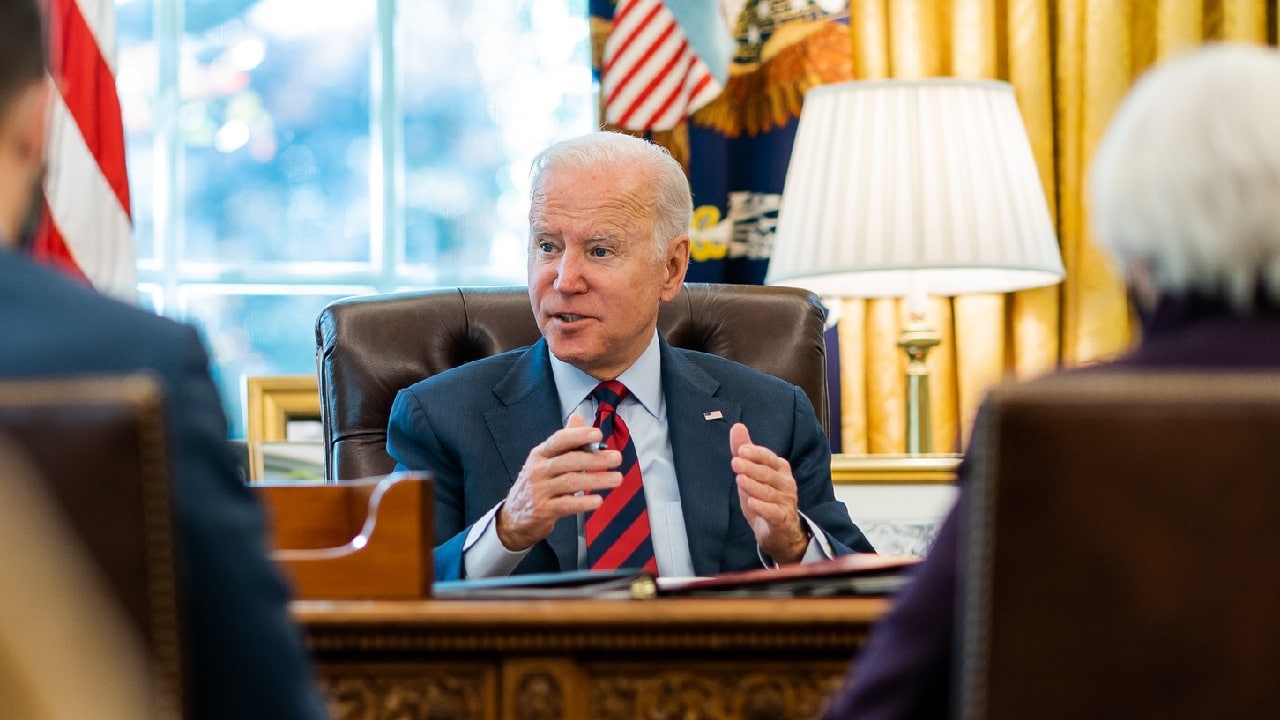President Joe Biden kept his promise to recognize the Armenian genocide. That might have brought some semblance of historic justice, but his administration has not addressed contemporary challenges with the same moral clarity. Following the genocide recognition, for example, Secretary of State Anthony Blinken quietly waived Section 907 in order to keep selling military goods to Azerbaijan in defiance of U.S. law. The idea was that both Armenians and Azerbaijanis got something they desired. But historical justice and military sales are not something to balance, not can they erase the potency of continued hatreds. Far from bringing calm, Blinken’s continued ‘bothsiderism’ in the face of Azerbaijani aggression only encouraged further Azerbaijani aggression.
In the most recent instance, Blinken this week met Azerbaijani Foreign Minister Ceyhun Bayramov and praised him as “courageous.” Azerbaijani President Ilham Aliyev responded to those comments by demanding Armenia transfer the Zangezur corridor—undisputed Armenian territory—to Azerbaijan or face continued aggression. So much for a courageous commitment to peace. Fear in Yerevan is real that Aliyev means to complete the Armenian genocide by eradicating the ethnic Armenian population in Karabakh. There is no reason to doubt Aliyev’s intent. The legal issues driving the territorial conflict are complex. Polemics and twitter sloganeering by Washington think tankers parroting Azerbaijani caviar diplomacy talking points do U.S. policymakers, Azerbaijan or Armenia no favors.
So how then to advance peace and security?
Earlier this week, Nikol Pashinian, Armenia’s democratically-elected though flawed prime minister, made public a proposal “to create a demilitarized zone around Nagorno-Karabakh with international guarantees.” There is little reason why Azerbaijan should oppose such a move if it is committed to diplomacy. To object to a demilitarized zone would imply Aliyev still seeks a military solution. This in turn should lead to an immediate end to the Section 907 waiver.
There should also be a role for peacekeepers. In November 2020, analysts looked at President Vladimir Putin’s insertion of boots on the ground in Nagorno-Karabakh as a victory for Russia. Many in Nagorno-Karabakh may have agreed, but the alternative—slaughter at the hands of the Azerbaijanis and Turks—was a worse option. The Russian force was to remain for five years, renewable at the request of the Armenians and/or the Azerbaijanis, but the deep losses suffered by Russia during its invasion of Ukraine make the continuation of the Russian force until 2025 questionable.
If Blinken wants to advance Western interests and checkmate Russian influence rather than issue boilerplate but vapid statements, he might consider crafting a new peacekeeping force. Prior to the 2020 Nagorno-Karabakh war, some in Washington suggested deployment of Scandinavian peacekeepers to the region although, in true Trumpian fashion, such proposals advanced without significant coordination with the Danes or Swedes who were expected to man such posts.
The Biden administration prides itself on both its relations with Europe and the professionalism of its policy process. It might prove the strength of both ties and process by working with Europe to create a European peace monitoring force.
Beyond peacekeepers, there should also be a role for observers along the entirety of the Armenia-Azerbaijan and Azerbaijan-Artsakh borders. Many in Nagorno-Karabakh may have agreed, but did felt the alternative—slaughter at the hands of the Azerbaijanis and Turks—was a worse option. The European Union did send some observers to Armenia. These had a positive effect but their mission was only two months. At a minimum, Blinken might help craft an observer mission comprised of both Europeans and Americans with successive and overlapping six-month rotations. Here, a model might be the Multinational Force of Observers in the Sinai, which has been among the most successful peacekeeping operations for more than four decades.
That Azerbaijan has refused to allow observers should worry both Washington and Brussels. It is hardly the action of a state committed to peace. European and American coercion might change that. If the State Department is unwilling, Congress might force its hand. Like Turkish President Recep Tayyip Erdogan, Aliyev talks tough but knows he cannot survive pariah status. Moral equivalence does not work. Peacekeepers, observers, and shining the light of accountability might. It is time for a new approach in Foggy Bottom.
Author Biography: Dr. Michael Rubin is a senior fellow at the American Enterprise Institute, where he specializes in Iran, Turkey, and the broader Middle East. A former Pentagon official, Dr. Rubin has lived in post-revolution Iran, Yemen, and both pre-and postwar Iraq. He also spent time with the Taliban before 9/11. For more than a decade, he taught classes at sea about the Horn of Africa and Middle East conflicts, culture, and terrorism, to deployed US Navy and Marine units. Dr. Rubin is the author, coauthor, and coeditor of several books exploring diplomacy, Iranian history, Arab culture, Kurdish studies, and Shi’ite politics, including “Seven Pillars: What Really Causes Instability in the Middle East?” (AEI Press, 2019); “Kurdistan Rising” (AEI Press, 2016); “Dancing with the Devil: The Perils of Engaging Rogue Regimes” (Encounter Books, 2014); and “Eternal Iran: Continuity and Chaos” (Palgrave, 2005). Dr. Rubin has a PhD and an MA in history from Yale University, where he also obtained a BS in biology.

